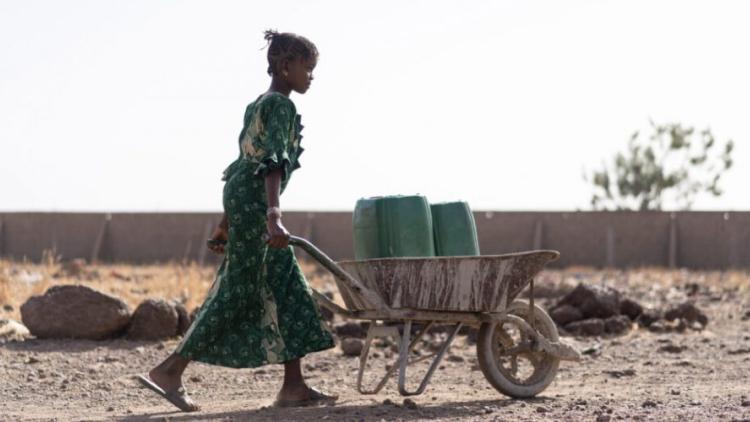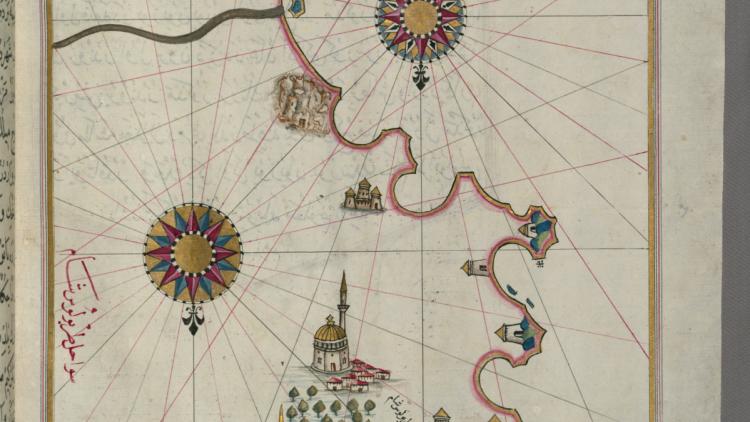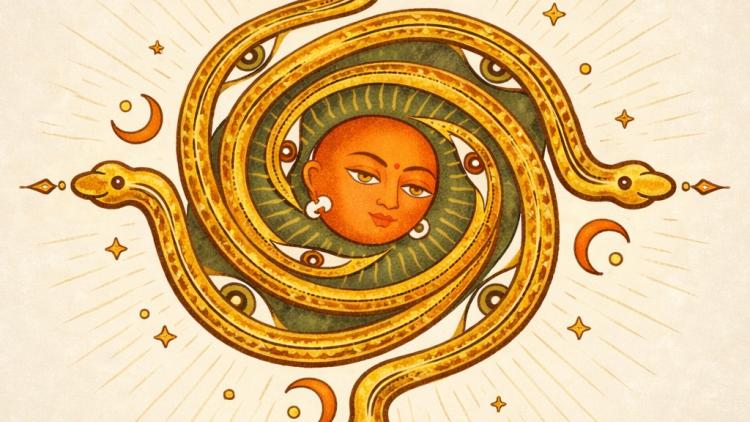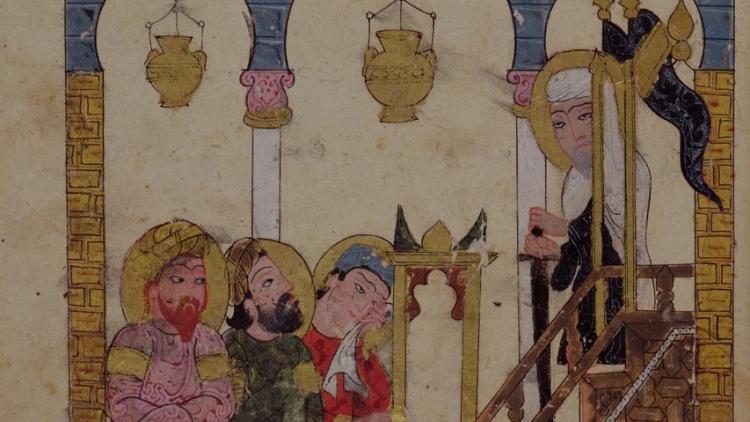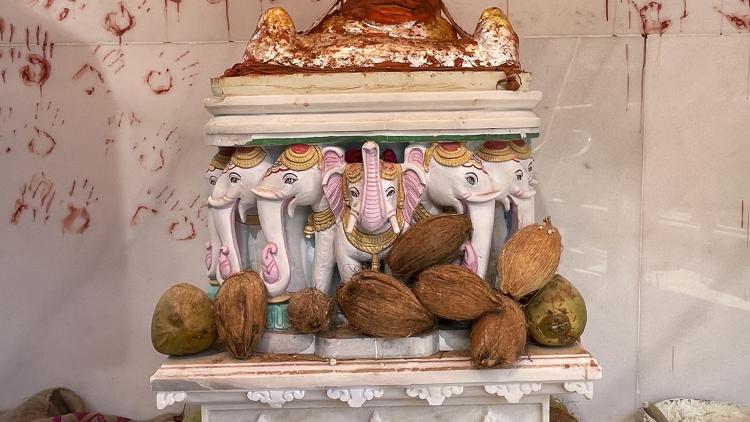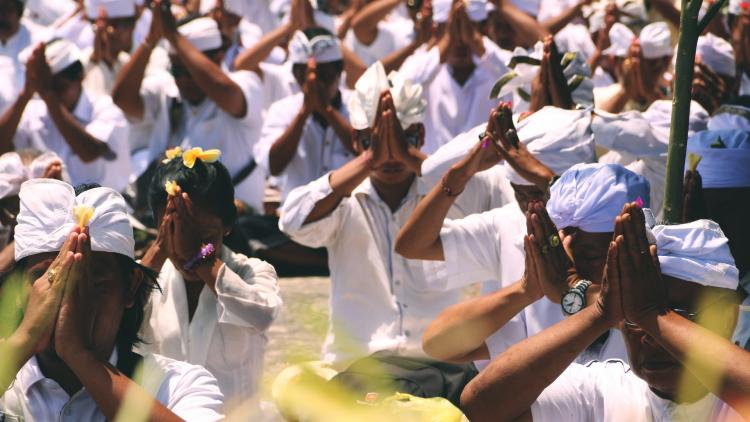MA Buddhist Studies


Key information
- Duration
- 1 year
- Start of programme
- September
- Attendance mode
- Full time or part time
- Location
- On Campus
- Fees
-
Home: £12,965
International: £25,320 - Course code
- PSO-BUDDST2PD, PSO-BUDDST1FD
- Entry requirements
-
Afghanistan: Qualifications (Bachelor equivalency): Master's degree from a recognised institution
Equivalent to 2:ii: 70% or 3.0
-
Albania: Qualifications (Bachelor equivalency): First Level Diploma (Diploma e nivelit te para) (3 Years) from a recognised institution
Equivalent to 2:ii: 7/10
-
Algeria: Qualifications (Bachelor equivalency): Licence; Diplome de [subject area]; Diplome d'Etudes Superieures; Diplome de Docteur end Pharmacie; or Diplome de Docteur en Medecine from a recognised institution
Equivalent to 2:ii: 12/20
-
Antigua and Barbuda: Qualifications (Bachelor equivalency): Bachelor's degree from the University of the West Indies
Equivalent to 2:ii: 2.7/4, B-, 60% or Lower Second Class Hons
-
Argentina: Qualifications (Bachelor equivalency): Titulo/ Grado de Licenciado/ Titulo de [subject area] (minimum 4 years) from a recognised institution
Equivalent to 2:ii: 6/10 or Bueno
-
Australia: Qualifications (Bachelor equivalency): Bachelor's degree from a recognised institution
Equivalent to 2:ii: 2:2 / Credit / 60%
-
Austria: Qualifications (Bachelor equivalency): Bachelor's degree from a recognised institution
Equivalent to 2:ii: 3.5/5.0 and overall Pass (Bestanden)
-
Azerbaijan: Qualifications (Bachelor equivalency): Bachelor's degree (Bakalavr Diplomu) from recognised institution
Equivalent to 2:ii: 70% or 3.5
-
Bahamas: Qualifications (Bachelor equivalency): Bachelor's degree from the University of the West Indies
Equivalent to 2:ii: 2.7/4, B-, 60% or Lower Second Class Hons
-
Bahrain: Qualifications (Bachelor equivalency): Bachelor's degree from a recognised institution
Equivalent to 2:ii: 74% or 2.67
-
Bangladesh: Qualifications (Bachelor equivalency): Master's degree from a recognised institution OR 4 Year Bachelor's degree from SELECTED institutions
Equivalent to 2:ii: Masters: 55% or 2.7. Bachelor: 60% or 3.0
-
Belgium: Qualifications (Bachelor equivalency): Licentiaat (Flanders) or Licencié (Wallonia). Post 2005 Bachelor/Bachelier 180 ECT degree from a recognised institution
Equivalent to 2:ii: 60% or 12/20 (Flanders); or 65% (Wallonia). Bachelor: 60% or 12/20
-
Bolivia: Qualifications (Bachelor equivalency): Licenciado or Título de [subject area] from a recognised institution. Minimum of 4 year
Equivalent to 2:ii: 67%
-
Botswana: Qualifications (Bachelor equivalency): Bachelor's degree (minimum 5 years) or Master Degree from the University of Botswana
Equivalent to 2:ii: C / 60% / 2:2
-
Brazil: Qualifications (Bachelor equivalency): Título de Bacharel / Título de [subject area] / Título de Licenciado/a (4 years) from a recognised institution
Equivalent to 2:ii: 6.5 or 65%
-
Brunei: Qualifications (Bachelor equivalency): Bachelor's degree (Honours) from recognised institution
Equivalent to 2:ii: Lower Second Class Hons; 50% / 3.5 out of 5.0
-
Bulgaria: Qualifications (Bachelor equivalency): Bachelor's degree from a recognised institution
Equivalent to 2:ii: 4.0/6.0
-
Burkina Faso: Qualifications (Bachelor equivalency): Diplome d'Etudes Approfondies. Diplome d'Etudes Superieures Specialisees
Equivalent to 2:ii: 13/20
-
Burma / Myanmar: Qualifications (Bachelor equivalency): Master's degree from a recognised institution
Equivalent to 2:ii: B- or 55% or 3.0/5.0 or 2.5/4.0
-
Cambodia: Qualifications (Bachelor equivalency): Master's degree from recognised institution
Equivalent to 2:ii: 65% or 2.7/4.0
-
Cameroon: Qualifications (Bachelor equivalency): Diplôme d'Ingénieur/ Diplôme d'Études Supérieures de Commerce (5 years) from a recognised institution
Equivalent to 2:ii: 12 (assez bien) or 2.5. 70-74/ B+
-
Canada: Qualifications (Bachelor equivalency): Bachelor's degree from a recognised institution
Equivalent to 2:ii: 2.7 or 67%
-
Chile: Qualifications (Bachelor equivalency): Grado de Licenciado en [subject area] or Titulo (Professional) de [subject area] (min 4 years) from recognised institution
Equivalent to 2:ii: 5.0/7
-
China Qualifications (Bachelor equivalency): Bachelor's degree (4 years) 学士学位 from a recognised institution
Equivalent to 2:ii: 70-75% or 2.5-2.9/4.0 (depending on university)
-
Colombia: Qualifications (Bachelor equivalency): Licenciado en [subject area] or Titulo de [subject area] (minimum 4 years) from recognised institution
Equivalent to 2:ii: 3.5/5.0
-
Croatia: Qualifications (Bachelor equivalency): Baccalaureus / Baccalaurea (Bachelor's degree) from a recognised institution
Equivalent to 2:ii: 3.0/5.0
-
Cuba: Qualifications (Bachelor equivalency): Titulo de Licenciado/ Arquitecto/ Doctor/ Ingeniero from a recognised institution
Equivalent to 2:ii: 3.5/5.0
-
Cyprus: Qualifications (Bachelor equivalency): Bachelor's degree from a recognised institution
Equivalent to 2:ii: 6.0/10 or 2.7/4.0
-
Czech Republic: Qualifications (Bachelor equivalency): Bachelor's degree (180 ECTS) from a recognised institution
Equivalent to 2:ii: 2.0/4.0
Information for prospective students from the Czech Republic
-
Denmark: Qualifications (Bachelor equivalency): Bachelor's degree from a recognised institution
Equivalent to 2:ii: 5/12 or 6/13
-
Dominica: Qualifications (Bachelor equivalency): Bachelor's degree from the University of the West Indies
Equivalent to 2:ii: 2.7/4, B-, 60% or Lower Second Class Hons
-
Dominican Republic: Qualifications (Bachelor equivalency): Título de Licenciado/Título de [subject] upon completion of 4-year Licenciatura
Equivalent to 2:ii: 65% or 6.5/10
-
Ecuador: Qualifications (Bachelor equivalency): Bachelor's degree from recognised university
Equivalent to 2:ii: 70% / 7
-
Egypt: Qualifications (Bachelor equivalency): Bachelor's degree from recognised university
Equivalent to 2:ii: 65% or 2.7/4.0
-
Estonia: Qualifications (Bachelor equivalency): Bakalaurusekraad from a recognised institution; University Specialist's Diploma; Professional Higher Education Diploma
Equivalent to 2:ii: 3.0/5.0 or C
-
Ethiopia: Qualifications (Bachelor equivalency): Master's degree from recognised public or HERQA-accredited private institution
Equivalent to 2:ii: 2.5/5.0
-
Fiji: Qualifications (Bachelor equivalency): Bachelor's degree (4 years) from the University of the South Pacific
Equivalent to 2:ii: B/3.0
-
Finland: Qualifications (Bachelor equivalency): Bachelor/Kandidaatti/Kandidat (180 ECTS credits) from a recognised institution
Equivalent to 2:ii: 2.5/4.0 or 1.4/3.0
-
France: Qualifications (Bachelor equivalency): Grade de Licence from a recognised institution OR three years of study from a grande école
Equivalent to 2:ii: 11/20
-
Gambia: Qualifications (Bachelor equivalency): 2-year Master's degree from recognised university
Equivalent to 2:ii: 2.7/4.3 or 60%
-
Georgia: Qualifications (Bachelor equivalency): Bachelor's degree (Bakalavris Khariskhi) from a recognised institution
Equivalent to 2:ii: 71%/C/ Good
-
Germany: Qualifications (Bachelor equivalency): Bachelor's degree (180 ECTS) from a recognised institution
Equivalent to 2:ii: Befriedigend: 2.6-3.5/5.0
-
Ghana: Qualifications (Bachelor equivalency): Bachelor's degree from a recognised institution
Equivalent to 2:ii: Lower Second Class Hons
-
Greece: Qualifications (Bachelor equivalency): Bachelor's degree from a recognised institution
Equivalent to 2:ii: 6/10 (University) or 6.8/10 (Tech Institutes)
-
Grenada: Qualifications (Bachelor equivalency): Bachelor's degree from the University of the West Indies
Equivalent to 2:ii: 2.7/4, B-, 60% or Lower Second Class Hons
-
Haiti: Qualifications (Bachelor equivalency): Bachelor's degree from the University of the West Indies
Equivalent to 2:ii: 2.7/4, B-, 60% or Lower Second Class Hons
-
Hong Kong: Qualifications (Bachelor equivalency): Bachelor's degree from a recognised institution
Equivalent to 2:ii: 2.5/4.0 or Lower Second Class Honours
-
Hungary: Qualifications (Bachelor equivalency): Bachelor's degree (Alapfokozat) or Diploma (Egyetemi Oklevél) from a recognised institution
Equivalent to 2:ii: 3.5/5.0
-
Iceland: Qualifications (Bachelor equivalency): Bachelor's degree (Baccalaureus or Bakkalarprof) from a recognised institution
Equivalent to 2:ii: 6.5 out of 10
-
India: Qualifications (Bachelor equivalency): Bachelor's degree (3 or 4 years) from a recognised institution
Equivalent to 2:ii: Top unis: 55%, or 5.5/10. All other: 60%, or 6.0/10; or 5.0/8.0
-
Indonesia: Qualifications (Bachelor equivalency): Bachelor's degree or Sarjana I (S1) from a recognised institution
Equivalent to 2:ii: 2.7/4.0
-
Iran: Qualifications (Bachelor equivalency): Licence/ Karshenasi (4-year Bachelor) from a recognised institution
Equivalent to 2:ii: 13/20
-
Iraq: Qualifications (Bachelor equivalency): Bachelor's degree (4-year) from a recognised institution
Equivalent to 2:ii: 65% or Good
-
Ireland: Qualifications (Bachelor equivalency): Bachelor's degree from a recognised institution
Equivalent to 2:ii: Second Class Honours Grade II
-
Israel: Qualifications (Bachelor equivalency): Bachelor's degree from a recognised institution
Equivalent to 2:ii: 65%
-
Italy: Qualifications (Bachelor equivalency): Laurea (180 ECTS) from a recognised institution
Equivalent to 2:ii: 94/110
-
Jamaica: Qualifications (Bachelor equivalency): Bachelor's degree from the University of the West Indies
Equivalent to 2:ii: 2.7/4, B-, 60% or Lower Second Class Hons
-
Japan: Qualifications (Bachelor equivalency): 学士 (Bachelor's degree) from a recognised institution
Equivalent to 2:ii: 70-75% / Good/ B or 2.7/ 4.0
-
Jordan: Qualifications (Bachelor equivalency): Bachelor's degree from recognised institution
Equivalent to 2:ii: 2.5/4.0 or 70%
-
Kazakhstan: Qualifications (Bachelor equivalency): Bachelor's (Bakalavr Diplomi) or Specialist Diploma from recognised institution
Equivalent to 2:ii: 2.67/4.0 or 3.5/5.0
-
Kenya: Qualifications (Bachelor equivalency): Bachelor's degree from a recognised institution
Equivalent to 2:ii: 2:2 or 50-59% or 2.4/4.0
-
Kuwait: Qualifications (Bachelor equivalency): Bachelor's degree from a recognised institution
Equivalent to 2:ii: GPA 2.67/4.0
-
Kyrgyzstan: Qualifications (Bachelor equivalency): Bachelor's degree or specialist diploma (min 4 years) from a recognised institution
Equivalent to 2:ii: 3.5/5.0 or 2.67/4.0
-
Latvia: Qualifications (Bachelor equivalency): Bakalaura Diploms (Bachelor's) or Profesionālā Bakalaura Diploms (Professional Bachelor's) from a recognised institution
Equivalent to 2:ii: 6/10
-
Lebanon: Qualifications (Bachelor equivalency): Bachelor's degree / Licence from a recognised institution
Equivalent to 2:ii: 70% or C or 2.7/4.0 or 12/20
-
Liberia: Qualifications (Bachelor equivalency): Master's degree from a recognised institution
Equivalent to 2:ii: 75% or 2.8/4.0
-
Libya: Qualifications (Bachelor equivalency): Bachelor's degree from selected institution
Equivalent to 2:ii: 65% or 2.8/4.0
-
Lithuania: Qualifications (Bachelor equivalency): Bachelors/Bakalauro (180 ECTS) from a recognised institution
Equivalent to 2:ii: 7/10
-
Luxembourg: Qualifications (Bachelor equivalency): Bachelor's degree from a recognised institution
Equivalent to 2:ii: 12/20
-
Macedonia: Qualifications (Bachelor equivalency): Bachelor's degree from a recognised institution
Equivalent to 2:ii: 7/10 or 2:2
-
Malawi: Qualifications (Bachelor equivalency): Master's degree from a recognised institution
Equivalent to 2:ii: 60% or 2.4/4.0
-
Malaysia: Qualifications (Bachelor equivalency): Bachelor degree
Equivalent to 2:ii: 3.0/4.0 or B (Class 2 Division 2)
-
Maldives: Qualifications (Bachelor equivalency): Bachelor's degree from the Maldives National University (MNU)
Equivalent to 2:ii: 50%
-
Malta: Qualifications (Bachelor equivalency): Bachelor degree from a recognised institution
Equivalent to 2:ii: Lower Second Class / 60% / Category IIB
-
Mexico: Qualifications (Bachelor equivalency): Titulo de Licenciado from a recognised institution
Equivalent to 2:ii: 7.5/10
-
Morocco: Qualifications (Bachelor equivalency): Licence/Licence d'Etudes Fondamentales/Licence Professionnelle from a recognised institution
Equivalent to 2:ii: 11/20
-
Namibia: Qualifications (Bachelor equivalency): Bachelor's degree from a recognised institution
Equivalent to 2:ii: 60% or 2.5/4.0
-
Nepal: Qualifications (Bachelor equivalency): Master's degree / Bachelor's (4-year) from select institutions
Equivalent to 2:ii: 55% or 2.4/4.0
-
Netherlands: Qualifications (Bachelor equivalency): Bachelor's degree from a recognised institution
Equivalent to 2:ii: 6/10 or 2.7/4.0
-
New Zealand: Qualifications (Bachelor equivalency): Bachelor's degree (3 or 4 years) from a recognised institution
Equivalent to 2:ii: Lower Second Class Hons
-
Nigeria: Qualifications (Bachelor equivalency): Bachelor's degree from a recognised institution
Equivalent to 2:ii: Lower Second Class Hons
-
Norway: Qualifications (Bachelor equivalency): Bachelors/Bachelorgrad (180 ECTS) or Candidatus/a magisterii from a recognised institution
Equivalent to 2:ii: Overall C
-
Oman: Qualifications (Bachelor equivalency): Bachelor's degree from a recognised institution
Equivalent to 2:ii: 2.7/4.0
-
Pakistan: Qualifications (Bachelor equivalency): Bachelor's degree (4-year) from HEC recognised institution or 2 year BA + 2 year MA from HEC recognised institution
Equivalent to 2:ii: CGPA 2.7 or 55%
-
Palestine: Qualifications (Bachelor equivalency): Bachelor degree (4-year) from a recognised institution
Equivalent to 2:ii: 75% or or 2.7/4.0
-
Papua New Guinea: Qualifications (Bachelor equivalency): Bachelor's (Honours) degree from a recognised institution
Equivalent to 2:ii: Class II Division B
-
Peru: Qualifications (Bachelor equivalency): Licenciado or Professional Title from a recognised institution
Equivalent to 2:ii: 12/20
-
Philippines: Qualifications (Bachelor equivalency): Master’s from recognised institution or Centre of Excellence; or Bachelor's from prestigious institution or Centre of Excellence.
Equivalent to 2:ii: 2.5/4.0 or 80% or 2.5/5.0 or Cum Laude
-
Poland: Qualifications (Bachelor equivalency): Licencjat or Inżynier from a recognised institution
Equivalent to 2:ii: 3.8/5.0
-
Portugal: Qualifications (Bachelor equivalency): Licenciado (180 ECTS) from a recognised institution
Equivalent to 2:ii: 12/20
-
Qatar: Qualifications (Bachelor equivalency): Bachelor's degree from a recognised institution
Equivalent to 2:ii: 2.7/4.0 or 3.3/5.0
-
Romania: Qualifications (Bachelor equivalency): Diplomă de Licenţă/Diplomă de Inginer/Diplomă de Urbanist Diplomat from a recognised university
Equivalent to 2:ii: 7/10
-
Russia: Qualifications (Bachelor equivalency): Diplom Bakalavra or Specialist Diploma from a recognised institution
Equivalent to 2:ii: 3.5/5.0
-
Rwanda: Qualifications (Bachelor equivalency): Bachelor's degree (4-year) from a recognised institution
Equivalent to 2:ii: Lower Second Class Hons; 60%; or 13/20
-
Saudi Arabia: Qualifications (Bachelor equivalency): Bachelor's degree from a recognised institution
Equivalent to 2:ii: 3.5/5.0 or 2.7/4.0 or 70%
-
Serbia and Montenegro: Qualifications (Bachelor equivalency): Bachelor's degree from a recognised institution
Equivalent to 2:ii: 7 / Good
-
Serbia and Montenegro: Qualifications (Bachelor equivalency): Bachelor's Honours degree from a recognised institution
Equivalent to 2:ii: Lower Second Class Hons; 55%; 3.4/5.0; 2.75/4.0
-
Singapore: Qualifications (Bachelor equivalency): Bachelor's degree from a recognised institution
Equivalent to 2:ii: 3.3/5.0 or 2.8/4.0
-
Slovakia: Qualifications (Bachelor equivalency): Bachelor's degree (Bakalár) from a recognised institution
Equivalent to 2:ii: 70%; or 2.0 overall; or C
-
Slovenia: Qualifications (Bachelor equivalency): Diploma o pridobljeni univerzitetni izobrazbi (University Degree) or Diploma o pridobljeni visoki strokovni izobrazbi / Diplomirani (Diploma of Professional Higher Education) or Diplomant or Univerzitetni diplomant (first degree)
Equivalent to 2:ii: 7 out of 10
-
Solomon Islands: Qualifications (Bachelor equivalency): Bachelor's degree (4-year) from the University of the South Pacific
Equivalent to 2:ii: B/3.0
-
Somalia: Qualifications (Bachelor equivalency): Do not accept national qualifications for direct entry
Equivalent to 2:ii: N/A
-
South Africa: Qualifications (Bachelor equivalency): Bachelor's degree (4-year) from a recognised institution
Equivalent to 2:ii: 60%
-
South Korea: Qualifications (Bachelor equivalency): Bachelor's degree from a recognised institution
Equivalent to 2:ii: GPA 2.5/4.0; or 2.8/4.3; or 3.0/4.5
-
Spain: Qualifications (Bachelor equivalency): Título de Grado / Título de Licenciado / Título de Ingeniero / Titulo de Arquitecto from a recognised institution
Equivalent to 2:ii: 6/10 or 1.5/4.0
-
Sri Lanka: Qualifications (Bachelor equivalency): Bachelor Special Degree or Professional Degree (4-year) from a recognised institution
Equivalent to 2:ii: 55% or 2:2 or 3.0/4.0
-
St Kitts and Nevis: Qualifications (Bachelor equivalency): Bachelor's degree from the University of the West Indies
Equivalent to 2:ii: 2.7/4, B-, 60% or Lower Second Class Hons
-
St Vincent and the Grenadines: Qualifications (Bachelor equivalency): Bachelor's degree from the University of the West Indies
Equivalent to 2:ii: 2.7/4, B-, 60% or Lower Second Class Hons
-
Sudan: Qualifications (Bachelor equivalency): Bachelor's degree (5-year) from a recognised institution
Equivalent to 2:ii: 60% or B
-
Sweden: Qualifications (Bachelor equivalency): Bachelor's Degree/Kandidatexamen/Yrkesexamen from a recognised institution
Equivalent to 2:ii: Pass OR Godkänd (with a minimum of 90 credits at Good - C)
-
Switzerland: Qualifications (Bachelor equivalency): Diplom/Diplôme;Lizentiat;Staatsdiplom/Diplôme d’Etat from a recognised institution
Equivalent to 2:ii: 4/6; or 6/10: or 3/5
-
Syria: Qualifications (Bachelor equivalency): Bachelor's degree (Licence/ al-ijaza-fi) from a recognised institution
Equivalent to 2:ii: 65%+ or 'Good' from a public university
-
Taiwan: Qualifications (Bachelor equivalency): Bachelor's degree from a recognised institution
Equivalent to 2:ii: 65-70% or GPA 2.6/4.0 - 2.8/4.0
-
Tanzania: Qualifications (Bachelor equivalency): Bachelor's degree from a recognised institution
Equivalent to 2:ii: 2:2; or Lower Second; or GPA 2.7/5.0
-
Thailand: Qualifications (Bachelor equivalency): Bachelor's degree from a recognised institution
Equivalent to 2:ii: 2.6/4.0
-
Trinidad and Tobago: Qualifications (Bachelor equivalency): Bachelor's Degree from UWI
Equivalent to 2:ii: B-, 60% or 2.5; or Lower Second Class Hons
-
Tunisia: Qualifications (Bachelor equivalency): Diplôme National d'Ingénieur/ Diplôme National d'Architecture/ Docteur en Médecine / Vétérinaire/ Licence/ Maîtrise from recognised institution
Equivalent to 2:ii: 11 out of 20
-
Turkey: Qualifications (Bachelor equivalency): Lisans Diplomasi from a recognised institution
Equivalent to 2:ii: Top Unis: 2.5/4.0. All others: 2.8/4.0
-
Uganda: Qualifications (Bachelor equivalency): Bachelor's degree from a recognised institution
Equivalent to 2:ii: 2:2 (Lower Second) or 3.0/5.0 or B
-
Ukraine: Qualifications (Bachelor equivalency): Bachelor's degree or specialist diploma from a recognised institution
Equivalent to 2:ii: 7 out of 12; or 3.5 out of 5
-
United Arab Emirates: Qualifications (Bachelor equivalency): Bachelor's degree from a recognised institution
Equivalent to 2:ii: GPA 2.6/4.0 or 75% or C+
Information for prospective students from the United Arab Emirates
-
United States of America: Qualifications (Bachelor equivalency): Bachelor's degree from a recognised institution
Equivalent to 2:ii: GPA 2.7/4.0
-
Vietnam: Qualifications (Bachelor equivalency): Bachelor's degree (4-year) from a recognised institution
Equivalent to 2:ii: 6.0/10 or 2.5/4.0
-
Yemen: Qualifications (Bachelor equivalency): Master's degree from a recognised institution
Equivalent to 2:ii: 70% or 2.7/4.0
-
Zambia: Qualifications (Bachelor equivalency): Master's degree from a recognised institution
Equivalent to 2:ii: 65%; B; Credit; 1.7/2.5; or 2.7/4.0; or 3.3/5.0
-
Zimbabwe: Qualifications (Bachelor equivalency): Bachelor's degree (3 or 4 years) from a recognised institution
Equivalent to 2:ii: 2:2 (60%)
-
We will consider all applications with a 2:2 (or international equivalent) or higher in a social science or humanities subject. In addition to degree classification we take into account other elements of the application such as supporting statement. References are optional, but can help build a stronger application if you fall below the 2:2 requirement or have non-traditional qualifications.
See international entry requirements and English language requirements.
Course overview
The MA Buddhist Studies is an interdisciplinary programme that engages with Buddhism as a field of inquiry from a historical, philosophical, anthropological and material culture perspectives.
It caters to students who wish to broaden either their knowledge of Buddhism as a whole or their knowledge of specific Buddhist traditions, as well as to students intending to embark on further research or fieldwork among Buddhist communities. This programme at SOAS follows a non-confessional, contextual approach, which highlights the diversity of Buddhism in its historical and geographical developments. The programme, crucially, appreciates Buddhism as a living religion. Detailed attention is given to how scholarship, both in the West and through Asia, has shaped our understanding of Buddhism.
The MA Buddhist Studies programme benefits from teaching on Buddhist languages and regional cultures across SOAS, and is supported by the SOAS Centre of Buddhist Studies. The Centre offers extraordinary opportunities for further engagement with the study of Buddhism. The Centre is a hub of internationally acclaimed and distinguished Buddhist scholarship that generates synergy among academics and research students, from SOAS and beyond, involved in the study of Buddhism in Asian societies.
The Centre currently comprises 17 permanent members of staff and emeriti, as well as a pool of associate and graduate student members from SOAS and other UK and international institutions.
Why study MA Buddhist Studies at SOAS?
- SOAS is ranked top 30 in the UK for Arts and Humanities (QS World University Rankings 2025)
- SOAS is ranked top 10 in the UK for Theology, Divinity and Religious Studies (QS World University Rankings 2025)
- SOAS is ranked 6th in the UK for Asian Studies (Complete University Guide 2025)
- Theology and Religious Studies scored above sector in the following categories: research culture, community, progression, research skills, and professional development (Postgraduate Research Experience Survey 2023)
- All of our Theology & Religious Studies impact case-studies were world-leading/internationally excellent (REF 2021)
- 85.4% of our Theology & Religious Studies research outputs were world-leading/internationally excellent – 56.3% of our submitted outputs were deemed world-leading (REF 2021)
- Our Theology & Religious Studies research environment score was 85% world-leading/internationally excellent
Study Tours
All postgraduate students can take part in our Study Tours and explore the world. This year’s destinations are New Delhi, Lahore, Seoul, Luang Prabang, Almaty, Bishkek, Kigali, Johannesburg, and Doha. For more information, see our Study Tours page.
Structure
Students must complete 120 credits of MA taught modules in addition to the compulsory dissertation (60 credits) as outlined below.
Part-time studies
Students may be allowed to study for the MA on a part-time basis: The part-time MA may be taken over two years, in which case the student takes two 30 credits (or equivalent 15 credits) in the first year, and two 30 credits (or equivalent 15 credits) and the dissertation in the second year.
Alternatively, it can be taken over three years in which case the student can distribute the 120 credits evenly in each of the three years. The dissertation can be written in year two or three, but it is strongly recommended that this be undertaken in the final year of the degree. It must be submitted in September of the year in which the student registers for it.
Part-time students: please note that modules not listed as running, are likely to run in the next academic year. For more information, contact the programme convener.
Important notice
The information on the website reflects the intended programme structure against the given academic session. The modules are indicative options of the content students can expect and are/have been previously taught as part of these programmes.
However, this information is published a long time in advance of enrolment and module content and availability is subject to change.
Core
Compulsory
Guided options - List B
Maximum 30 credits from List B
Guided options - List A
Minimum 30 credits from List A
Open options
Students can take up to 30 credits of open options from Departments and Schools across the University - including a wide range of language modules.
This year, more than 350 open options were available across all Departments.
Teaching and learning
The structure of MA Buddhist Studies provides a unique study pathway, characterised both by its coherence and by its flexibility. The core module "Critical Concepts in Buddhist Studies" provides students with a broad and stimulating journey into key notions and methods in the study of Buddhism.
We recommend that part-time students have between two and a half and three days free in the week to pursue their course of study.
Programme learning outcomes
Knowledge
- Students will learn how to assess data and evidence critically, locate and synthesise source materials, critically evaluate conflicting interpretations and sources, use research resources (library catalogues, journal databases, citation indices) and other traditional sources.
- Subject specific skills, for instance, textual criticism, edition, translation, and interpretation of literary, epigraphical, and ethnographic sources, as well as analysis of archaeological and art-historical artefacts.
- Whenever appropriate, students will enhance their knowledge of one Buddhist language, or gain familiarity with one of these languages, freely chosen among a wide pool on offer.
- Students will gain familiarity with Buddhism in its various regional and historical contexts, and with the academic field of Buddhist Studies, its rich history and the variety of academic perspectives on Buddhism.
Intellectual (thinking) skills
- Students should become precise and cautious in their assessment of evidence, and understand through practice what documents can and cannot tell us.
- Students will develop the capacity to discuss theoretical and epistemological issues in an articulate, informed, and intellectual manner
- Students will learn to become precise and critical in their assessment of scholarly arguments and to question interpretations, however authoritative, in order to reassess evidence for themselves
- Students will learn to present complex arguments clearly and creatively.
- Those students who take a language option should be able to assess primary sources in foreign languages and critically evaluate interpretations proposed by different scholars.
- Students will acquire both theoretical and regional expertise in order to develop and apply sound academic approaches to the study of Buddhism.
Subject-based practical skills
- Academic writing
- IT-based information retrieval and processing
- Presentational skills
- Independent study skills and research techniques
- Reflexive learning
Transferable skills
- Write concisely and with clarity.
- Effectively structure and communicate ideas (oral and written).
- Explore and assess a variety of sources for research purposes.
- Work to deadlines and high academic standards.
- Assess the validity and cogency of arguments
- Make judgements involving complex factors
- Develop self-reflexivity
- Question the nature of social and cultural constructs
Dissertation
Students will moreover have to submit a Dissertation in Buddhist Studies of 10,000 words, on a topic chosen from the module chosen as major. The remaining modules may be chosen in the large pool of modules on Buddhist topics and languages, thus allowing each student to build up a specialized knowledge of one or more areas of Buddhist Asia.
Students are allowed to take modules taught outside the department of Religions and Philosophies up to one module, which may or may not include a language.
SOAS Library
SOAS Library is one of the world's most important academic libraries for the study of Africa, Asia and the Middle East, attracting scholars from all over the world. Moreover, every year there is a lively events programme that attracts renowned speakers from around the world, allowing students to engage with cutting edge debates on contemporary politics.
Employment
In addition to an understanding of global faiths, histories and cultures, graduates from the Department of Religions and Philosophies develop the skills to analyse and communicate ideas in a clear, rational and comprehensive manner. These key proficiencies are valuable in many careers and are transferable to a wide range of sectors and roles.
Recent Department of Religions and Philosophies graduates have been hired by:
- Asia Society
- British Council
- Cabinet Office
- Chatham House
- Edelman
- Foreign, Commonwealth and Development Office
- HELP USA
- King's College Hospital NHS Foundation Trust
- Princeton University
- Royal Government of Cambodia
- The Happiness Factory
- The Inter Faith Network for the UK
- The Royal Borough of Kensington and Chelsea
- UNHCR, the UN Refugee Agency
- United Nations Development Programme
Find out about our Careers Service.




